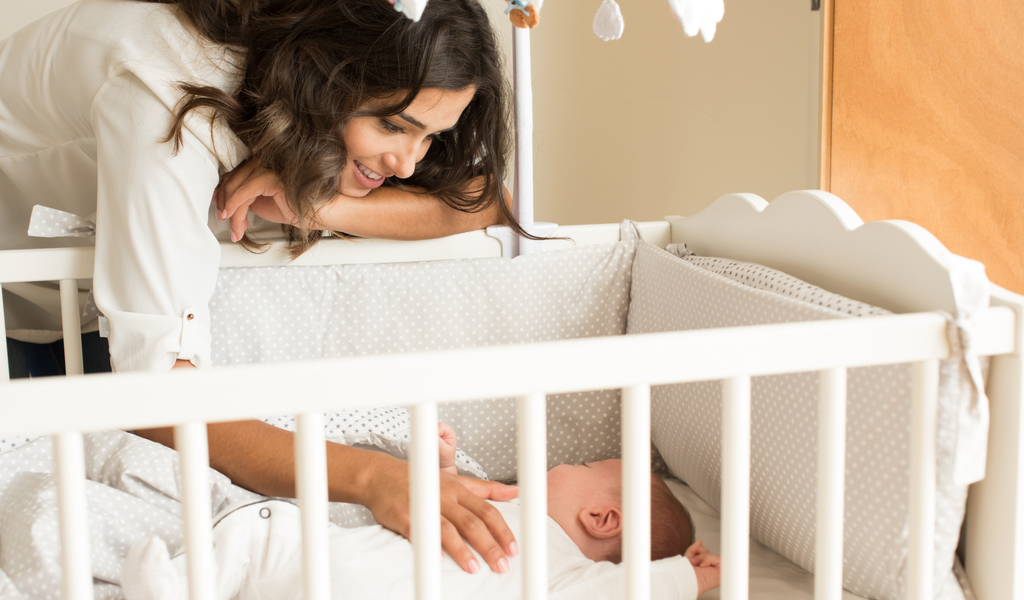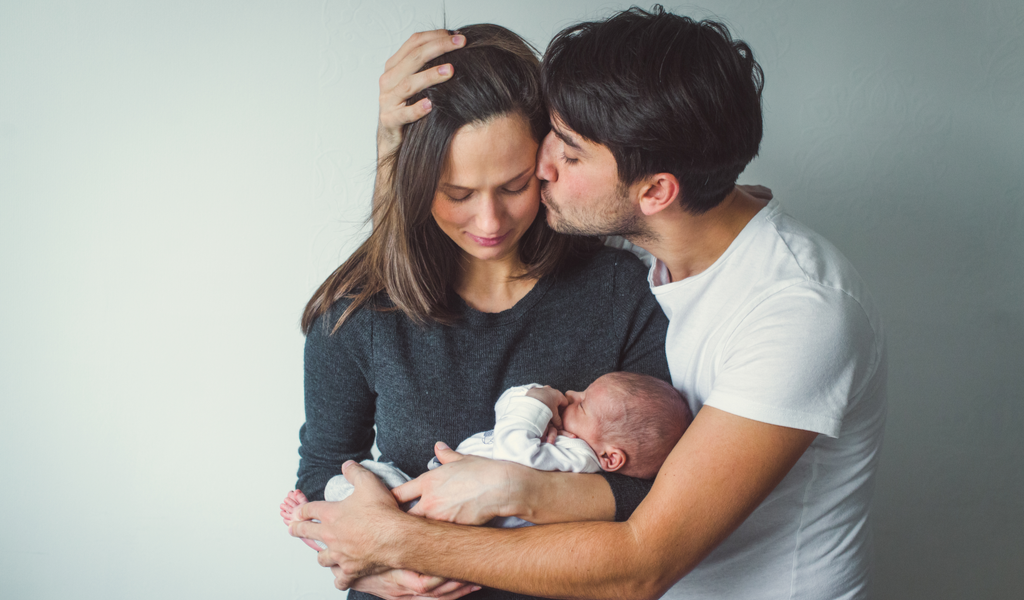… and a few tips to help you get there!
Young parents who complain that their children do not sleep for long enough are often advised to put them to bed later so that they will sleep through the night or wake up later. However, this couldn’t be further from the truth!
Young children, especially those under the age of 2, wake up every few hours throughout the night and there’s nothing anyone can do about it. The myth about keeping them awake for longer to make them sleep better is not only false but can also cause even more damage to their – and their parents’ – sleeping habits.

Even beyond that, this can also cause long-lasting effects on the child and parent’s health, according to a recent study.
A government organization called Growing Up in Australia conducted a massive study that included over 10,000 children and their families. The aim of the study was to find out more about a mother’s and her baby’s health. The study that began in 2003 collected data every 2 years of a child’s life, taking into account things like milestones, development, and health.
The study was clear about one thing: children who went to bed earlier were the healthiest. They also slept better (less nighttime wakings) and for longer.
Contrary to the popular wives’ tale that children should stay up later for better sleep, the study says that children who go to sleep earlier have better health and it even claims that such kids grew up to lead a better quality of life!
The study divided thousands of children into 4 groups based on their sleeping habits. Data was then collected and categorized under these groups so analysis could be made. What was found is that kids who went to bed early and woke up early in the morning were the healthiest. At a conference where the findings were presented, researchers also said that those children had a lower risk of obesity as they grew older.
It Also Helps Mom’s Mental Health
As for their moms, it turns out that having their kids in bed by 8:30 was a good thing for them too! Another study that was presented at the Australian conference Sleep DownUnder stated that parents who had kids who went to bed early had better overall health. Having early sleepers impacts a mother’s mood positively, making them happier.
Parents spend their entire day engrossed in their kids’ lives that it barely gives them any time to feel like themselves. When children go to bed early, they have a few hours every day where they can spend some alone time and do things that they want to do.
Helps Couples Maintain a Healthier Relationship
Couples also tend to have healthier relationships when children go to bed early as they get to spend time with each other without any interference from the kids. They can focus solely on each other, making their relationship and intimacy better. These are also things that seriously impact the mental health of a mother and father. This then trickles on to the kids because happier parents equal happier kids!

Tips for Better Sleep
Getting your baby to sleep on time is easier said than done. Just ask any parent! But it isn’t impossible. It is also one of those things that you may need to struggle with initially but becomes easier once you inculcate the habit.
Here are some tips to help you help your baby become a better sleeper:
Create a calm, soothing environment. Make sure your baby’s room is quiet and dark at night. Soundproof the room if possible and do not keep any nightlights on. Some parents like to play white noise sounds which helps the baby sleep better (and also not become disturbed by small outside sounds).
Make sure the baby’s tummy is full before putting them to bed. A well-fed baby will sleep for longer intervals as they won’t get hungry as often.
Have a bedtime routine that is familiar and consistent. That way, the child understands that it is time to go to bed when the routine is done. Keep pre-bedtime activities limited to low-stimulation ones such as having a bath, reading a book, etc. If your baby becomes overstimulated, they may have trouble falling asleep.
When the baby wakes up in the middle of the night, wait a couple of minutes before rushing to their side. It is natural for babies to wake up several times during the night, but if you do not give them a chance to learn to self-soothe, they will always expect you to be by their side the minute they wake up. Giving them a few minutes to see if they can put themselves back to sleep is a good idea.
Babies have several naps throughout the day. Do not let them sleep for longer than 1-2 hours and make sure they get age-appropriate amounts of wake and playtimes in between. Make the gap between their last nap of the day and bedtime slightly longer than others and don’t be hesitant to wake them up if they seem to be sleeping for too long during daytime naps. Make sure the room isn’t entirely dark or noiseless during daytime naps, unlike nighttime, because that is how a baby learns the difference between day and night sleep.
Making Bedtimes Earlier
If your child is already going to bed really late and you’re wondering if it’s too late to change that, don’t worry, it’s not! Here is a simple method to slowly move your child’s bedtime up to a more appropriate time. It may take a few days to get into a habit, but you can definitely do it.
All you need to do is slowly move your baby’s bedtime up by 15-30 minutes at a time until you reach the desired sleep time. Keep in mind that you will also need to adjust their naps to ensure that there is enough of a gap between their last nap of the day and the new bedtime.
For instance, if your baby is sleeping at 9 every day, but you would like them to go to bed by 7:30. Start by putting them to sleep by 8:30 for a few days. Then you can keep moving it up until you get to 7:30. Your baby shouldn’t take longer than 30 minutes to fall asleep. If they are, it means that they are overstimulated or that their naptimes are too long.



